If you’re planning to tow a trailer, you might be wondering whether or not you should grease the trailer ball.
After all, grease is often used to lubricate moving parts and prevent them from rusting or seizing up.
Should You Grease A Trailer Ball?
The short answer is yes, you should definitely grease your trailer ball.
Doing so will help keep it in good condition and prevent any potential problems down the road.
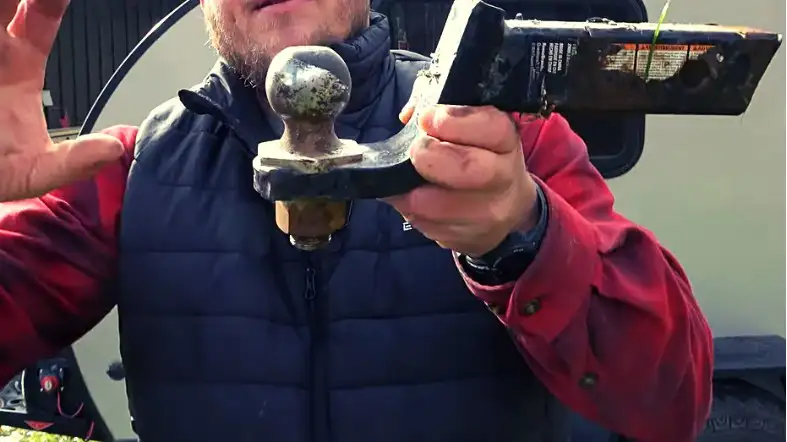
Here’s a more detailed explanation of why you should grease your trailer ball, as well as some tips on how to do it.
Why You Should Grease Your Trailer Ball?
There are several reasons why you should grease your trailer ball.
Here are the top 7 reasons:
1. Grease prevents rust and corrosion
One of the main reasons to grease your trailer ball is to prevent rust and corrosion. When metal is exposed to moisture, it can start to rust and corrode.
Grease creates a barrier between the metal and the moisture, which helps to protect it from rust and corrosion.
2. Grease prevents seizing and binding
Another reason to grease your trailer ball is to prevent seizing and binding.
Over time, moving parts can start to seize up or bind together.
This can happen when dirt, debris, or water gets into the joint or connection.
Grease will help to lubricate the moving parts, which will prevent them from seizing or binding together.
3. Grease enhances performance
In addition to preventing rust, corrosion, and seizing, grease can also enhance the performance of your trailer ball.
Grease helps to keep the moving parts well-lubricated, which can improve the overall function of the trailer ball.
4. Grease Reduces Wear And Tear
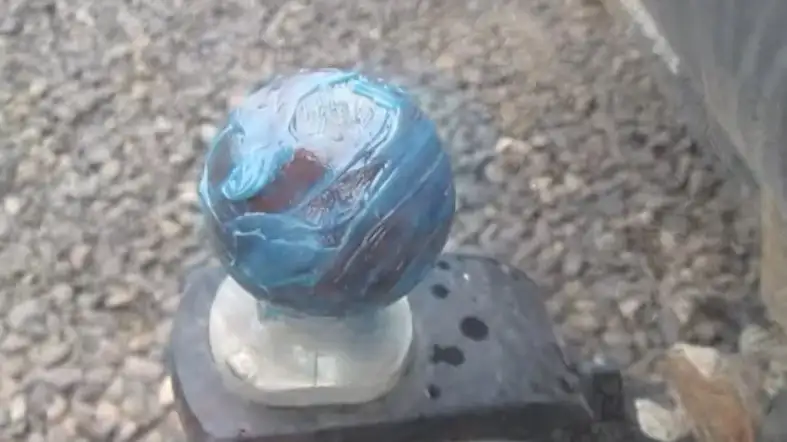
Another benefit of greasing your trailer ball is that it can reduce wear and tear.
When metal rubs against metal, it can start to wear down over time.
Grease will help to create a smooth surface for the metal to move against, which will reduce wear and tear.
5. Grease minimizes friction
Friction can cause a lot of problems, including binding, seizing, and wear and tear.
By reducing friction, grease can help to minimize these problems.
6. Grease can extend the life of your trailer ball
Because grease can help to prevent rust, corrosion, binding, seizing, and wear and tear, it can also help to extend the life of your trailer ball.
7. Grease is relatively inexpensive
Another reason to grease your trailer ball is that it’s relatively inexpensive.
A small tube of grease will last for quite a while, so you won’t have to spend a lot of money to keep your trailer ball in good condition.
How To Grease Your Trailer Ball?
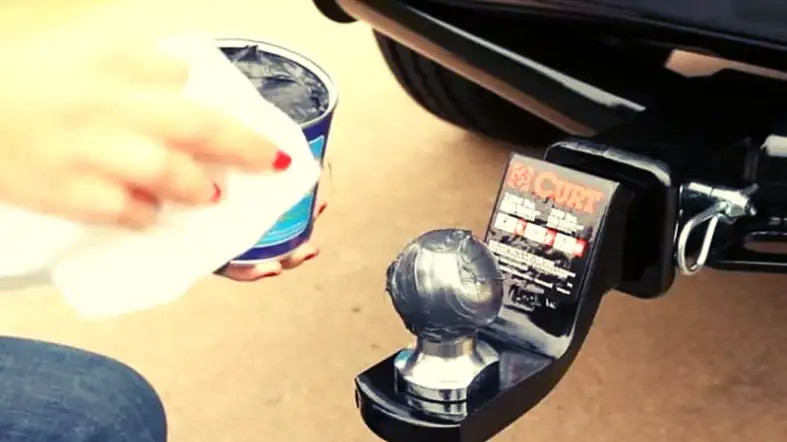
Now that you know why you should grease your trailer ball, you’re probably wondering how to do it.
Here’s a step-by-step guide on how to grease your trailer ball:
1. Park your tow vehicle and trailer on level ground.
2. Place a jack under the tongue of the trailer so that the weight is off of the hitch. This will make it easier to remove the hitch ball.
3. Unscrew the nut that holds the hitch ball in place. You may need a wrench to do this.
4. Remove the hitch ball from the socket.
5. Wipe away any dirt or debris from the hitch ball and socket with a clean cloth.
This is important because you don’t want to get any dirt or debris in the grease.
6. Apply a generous amount of grease to the hitch ball. You can use your fingers or a brush to do this.
7. Replace the hitch ball in the socket and screw the nut back on. Tighten the nut until it’s snug, but don’t overtighten it.
8. Lower the jack so that the trailer is once again resting on its hitch.
9. You’re now ready to hitch up and hit the road!
Greasing your trailer ball is an important part of maintaining your trailer and ensuring that it tows smoothly.
By following these steps, you can easily grease your trailer ball and keep it in good condition.
How Often Should You Grease Your Trailer Ball?
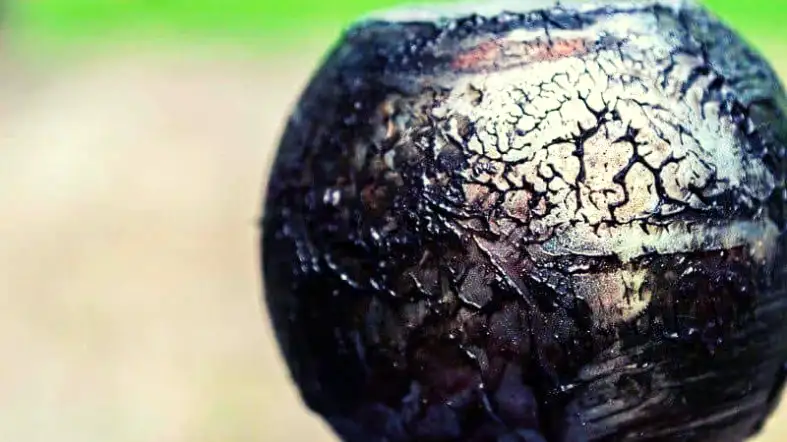
You should grease your trailer ball at least once a year, and more often if it’s used frequently.
If you notice that the hitch ball starts to rust or corrode, or if it starts to seize up or bind, then it’s time to give it a good greasing.
By keeping your trailer ball well-greased, you can prevent problems and ensure that it tows smoothly for years to come.
How To Remove Rust From Your Trailer Ball Before You Grease It?
If your trailer ball has developed some rust, don’t worry—it’s not the end of the world.
Here are a few simple steps that you can follow to remove rust from your trailer ball:
1. Park your tow vehicle and trailer on level ground.
2. Place a jack under the tongue of the trailer so that the weight is off of the hitch ball.
This will make it easier to remove the hitch ball.
3. Unscrew the nut that holds the hitch ball in place. You may need a wrench to do this.
4. Remove the hitch ball from the socket.
5. Use a wire brush to remove any loose rust from the hitch ball. You can also use sandpaper if you don’t have a wire brush.
6. Wipe away any dirt or debris from the hitch ball and socket with a clean cloth.
This is important because you don’t want to get any dirt or debris in the grease.
7. Apply a generous amount of grease to the hitch ball. You can use your fingers or a brush to do this.
8. Replace the hitch ball in the socket and screw the nut back on. Tighten the nut until it’s snug, but don’t overtighten it.
9. Lower the jack so that the trailer is once again resting on its hitch.
10. You’re now ready to hitch up and hit the road!
What Type Of Grease Should You Use?
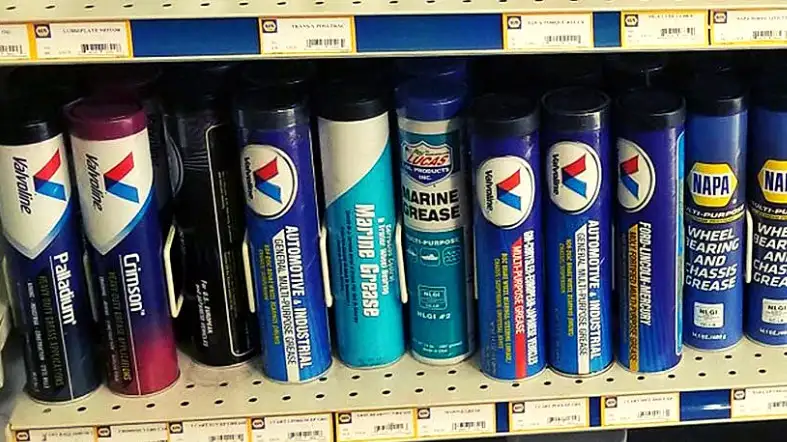
There are mainly two types of grease that you can use on your trailer ball: synthetic grease and petroleum-based grease.
Synthetic grease is a good choice because it’s resistant to water and won’t break down as quickly in high temperatures.
It’s also less likely to cause corrosion than petroleum-based grease.
Petroleum-based grease is a good choice for those who live in cold climates because it’s less likely to freeze.
What to Avoid When Greasing Your Trailer Ball?
When you’re greasing your trailer ball, there are a few things that you’ll want to avoid:
1. Over-greasing the hitch ball.
You don’t need to use a lot of grease—a little will go a long way.
Too much grease can actually attract dirt and debris, which can cause problems down the road.
2. Using the wrong type of grease
As mentioned above, there are two main types of grease that you can use on your trailer ball: synthetic grease and petroleum-based grease.
Make sure to choose the right type of grease for your needs.
3. Not cleaning the hitch ball before greasing it
Before you apply any grease to the hitch ball, make sure that it’s clean.
If there’s any dirt or debris on the hitch ball, it could get into the grease and cause problems.
4. Forgetting to check the condition of the socket
It’s not just the hitch ball that needs to be in good condition—the socket does too.
Make sure to inspect the socket for any signs of wear or damage before greasing the hitch ball.
5. Not greasing the trailer ball often enough
You should grease your trailer ball at least once a year.
If you use your trailer frequently, you may need to grease it more often.
Things To Remember When Buying Grease For A Trailer Ball
When you’re buying grease for a trailer ball, there are a few things that you’ll want to keep in mind:
1. Make sure to get the right type of grease.
As mentioned above, there are two main types of grease that you can use on your trailer ball: synthetic grease and petroleum-based grease.
Choose the type of grease that’s right for your needs.
2. Get a good quality product.
There are a lot of different brands of grease out there, so it’s important to choose a good quality product.
Do some research to find out which brands have a good reputation.
3. Make sure the container is properly labeled.
When you’re buying grease, make sure that the container is properly labeled.
The label should indicate what type of grease it is and how much it contains.
4. Buy enough to last you a while.
Grease doesn’t go bad, so it’s a good idea to buy enough to last you a while.
This way, you won’t have to worry about running out in the middle of a project.
5. Store the grease properly.
Once you’ve bought the grease, make sure to store it in a cool, dry place.
This will help to keep it in good condition.
FAQs About grease a trailer ball
Can I Use WD-40 To Grease My Trailer Ball?
You may have heard that you can use WD-40 to lubricate your trailer ball.
While WD-40 can be used as a temporary fix, it’s not a good long-term solution.
WD-40 is designed to displace water, so it will eventually wash away any grease that you apply with it.
It’s also not very effective in cold weather, so it’s not a good choice for greasing your trailer ball in the winter.
For these reasons, it’s best to stick with traditional grease when lubricating your trailer ball.
Can I Use Other Greases Besides Ball Bearing Grease?
Yes, you can use other greases besides ball bearing grease.
However, it’s important to choose a grease that is designed for high-temperature and high-pressure applications.
This type of grease will stand up to the heat and pressure generated by the trailer ball and will prevent it from seizing up or binding.
Can I Use Vegetable Oil To Grease My Trailer Ball?
No, you should not use vegetable oil to grease your trailer ball.
Vegetable oil is not designed for high-temperature or high-pressure applications and will break down quickly when exposed to the heat and pressure generated by the trailer ball.
This can cause the hitch ball to seize up or bind, which can lead to problems when you’re trying to tow your trailer.
So, stick with traditional greases like ball-bearing grease or other high-temperature, high-pressure greases.
These types of greases will stand up to the heat and pressure generated by the trailer ball and will keep it running smoothly.
Conclusion
As you can see, there are a few things that you need to consider when deciding whether or not to grease your trailer ball.
However, in most cases, it’s a good idea to grease your trailer ball at least once a year, and more often if it’s used frequently.
By keeping your trailer ball well-greased, you can prevent problems and ensure that it tows smoothly for years to come.
